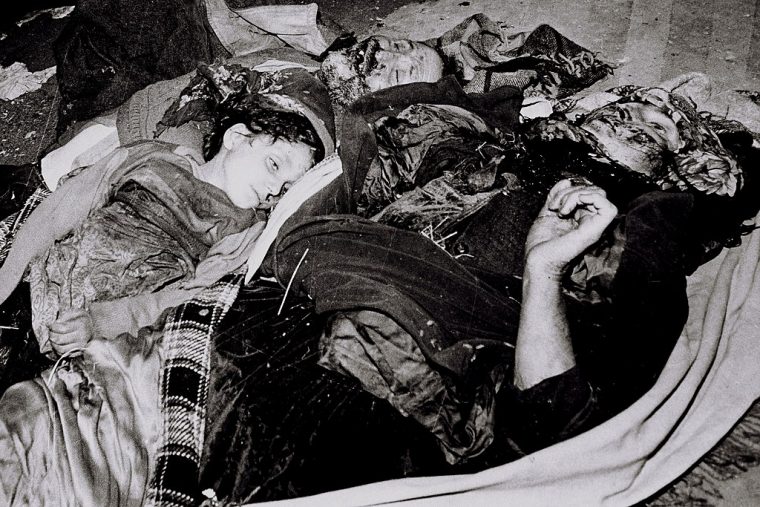By Rachel Avraham
In a webinar on “The Khojaly Tragedy: The Effects of Genocide and Related Immigration Policies on Women and Children” that was sponsored by the North American Azerbaijani Youth Association, Armooh-Williams, and PLLC, a group of women discussed how the Khojaly Genocide was a major trauma for Azerbaijani women and children. As Joyce Williams, the managing attorney at Armooh-Williams, PLLC and ABA Rule of Law Africa Division, noted: “When we see wars and natural disasters, women are at the brunt of it. Women tend to suffer and absorb sexual assault, physical assault, displacement and got nowhere to go and defend themselves.”
Pratima Narayan, a senior program manager at the Global Initiative for Justice, Truth and Reconciliation, concurred that genocide does affect women differently than men: “It dehumanizes everyone. Women and men are targeted in distinct ways. Men are targeted as heads of houses and for their status. Females are targeted as wives, mothers and daughters and for the fact that they carry the future of the community. Violence against humanity is fueled by patriarchy. Women are killed and harmed in a way that reflects this. Women are slashed, stabbed, burned, etc. What we see is that women’s sexuality and reproductive role is used against them. That impact of genocide tends to be further impacted. Women can be further ostracized for they experienced these acts.”
Sara Elizabeth Dill, a partner at Anethum Global, stressed: “You have a society that discriminates against women from the beginning. They are not getting an education for they are raising children. In the last years, we had the Me-Too Movement and an acknowledgement of what women go through. If we allow this to happen regularly, we cannot expect them not to not be targeted at a greater level during times of conflict. The crimes against women especially the sexual crimes leave a lasting impact. There needs to be more dialogue, but it is difficult for it is hard to talk about. It is hard to get them to open up. There is a stigma. Religion plays a role in this.”
However, despite the stigma, more and more female genocide survivors are coming forward and speaking up about their experiences. In Khojaly: A Crime against Humanity and Murdered in the Mountains: War Crime in Khojaly, countless female victims came forward to discuss their experiences in Armenian captivity, where they were raped, tortured and exposed to other forms of gender-based discrimination during the Khojaly Genocide.
In this talk, Yasimim Hasanova, a survivor of the Khojaly Genocide, also came forward with her experience: “When I was 12, I experienced the Khojaly genocide. In this massacre, I lost my father, my mother, my grandparents, uncles, etc. I lost all my family and relatives. The main scary thing is to grow up without parents and psychological trauma, to see with your own eyes people taking human life. This destroyed my childhood. I could not reconcile myself with the loss of my parents and relatives. I cannot forget what happened in Khojaly.”
“Think of what it means to lose both parents, relatives, loved ones in one night,” she added. “It is difficult for me to explain. Killing people overnight can only be ethnic cleansing. For 29 years, I don’t know what parental love is.” Yet, Hasanova is greatly disturbed with how the international community has responded to the Khojaly Genocide: “We don’t see the necessary steps taken by the world community. People should not be indifferent or silent to this tragedy. Criminals must be punished.”
“For the past 29 years, I hoped to return to my parents, but I have to come to terms with this reality,” she noted. “Hundreds of children from Karabakh are living through this tragedy and grew up in this pain. But we no longer want such a thing to happen. It is a heavy load on our backs. That is why I am asking for a fair approach to this genocide.”
Aytaj Gasimova, the President of the North American Azerbaijan Youth Association, concurred: “Every year in February, as Azerbaijanis living in the US, we march to raise awareness for this injustice. 21 states recognize Khojaly genocide and many countries. But still, the international community did not bring justice. We demand that Armenia be held accountable. We want victims to feel hope that someone is held accountable. It is important that the international community recognize this tragedy.”
“As Azerbaijanis across America, we try to raise awareness across the world,” she added. “I was born during the First Karabakh War. On an individual level, it has a unique effect on women and children. This is a psychological trauma that continues into adulthood. My town Ganja is awfully close to Karabakh. My town hosted thousands of IDP’s. I grew up with children who remembered all the horror of those times and this affected their adult lives. Many of them had PTSD, which affected their whole life.”
“We hope with the resolution of this conflict, we will have justice and stability in the area and the IDP’s can return to their homes,” Gasimova concluded. “Meanwhile, we must work for a sustainable and peaceful future for the next generation, so that they will not go through anymore horrors.” In conclusion, Joyce Williams emphasized: “Every time we time we turn a blind eye, we set ourselves up for a long life of suffering and pain. Our pains affect us in the future. Although the killing stopped, they still have to live with these memories. We hope for a better world and a better future.”






